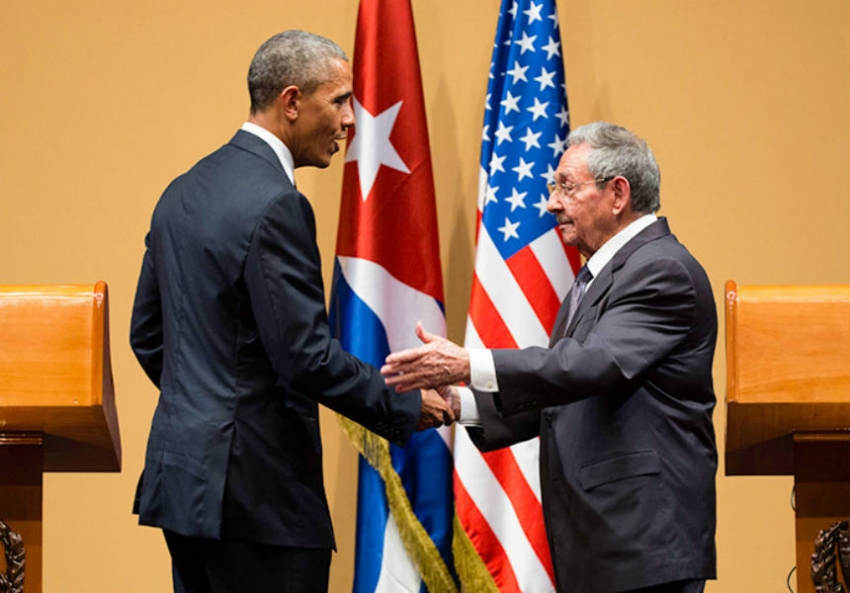
Ought We Be Grateful for Su Bin, or Cry Out in Grievance?
Su Bin was arrested in Canada in June 2014, and he was handed over to American judicial authorities in February of this year. The Chinese government has consistently denied involvement in the Su Bin case. On March 24, the Ministry of Foreign Affairs said that it would continue to closely follow the case, asking that the U.S. guarantee the Chinese citizen’s right to privacy and all legal rights accorded in America.
Due to the reality of the plea-bargaining process in American courts, the accused usually receives a lighter sentence. It is difficult for observers to understand the thinking of the accused, and whether or not in this case there is an element of injustice.
Intelligence is a matter of constant development in every country. The world’s best-known intelligence agencies are the CIA and the FBI, the latter of which has already made China a chief target of intelligence gathering. Yet we always hear in the media of how America has caught a Chinese "spy,” many cases of which are later proven to be false accusations. At the same time, we seldom hear of China catching American "spies.” Reportedly, China has indeed caught some, but has not revealed them publicly due to various considerations.
Under normal circumstances, when a spy is caught, the country doing the dispatching or the bribing does not admit to anything. For instance, every time China announces that it has caught spies from Western countries, the West not only refuses to admit that the captured individuals are a part of any spy agency, but the West also mobilizes Western public opinion in an attack on Chinese human rights, inciting discord.
As a Chinese media outlet, we have no way of knowing whether or not Su Bin really did steal data on the three major American airplane models and give them to Chinese officials. If this is the case, we are willing to say thanks, and even express true gratitude. In today’s game of practical security between the U.S. and China, China’s undercover efforts obviously require intelligence whizzes who are able to obtain key information from the Americans. Regardless of whether he was an intelligence agent sent by China or took a risk for the sake of business interests, we all believe he is a good man.
If he really is being falsely accused and has been forced to sign a confession under pressure by the U.S. Department of Justice, we would like to express deep sympathy for him. We believe that as the U.S.-China espionage battles continue, there will henceforth be many people locked up in America because they are mistaken for Chinese spies. This is a tragedy of the age, and we hope that people of Chinese descent working in sensitive areas will be even more careful, so as to avoid the mystifying gaze of American intelligence agencies.
What is so awful now is that whatever is called illegal spying can be determined by America’s interests, since America controls the direction of the world’s public opinion. Moreover, if American espionage activities were to be revealed, American public opinion would help minimize the damage. And when key information on suspected espionage activity of other countries is discovered, America blows things out of proportion, exaggerating the gravity of how illegal that activity is.
The most typical case is the PRISM surveillance program revealed by Edward Snowden. America treated all allied leaders as major intelligence collection targets, to worldwide uproar. America did not reflect on this, but rather ordered Snowden’s arrest. During the same period of time, Washington somehow had the nerve to blast China about “Internet espionage activity.” America appears as if it is always completely justified from the inside out.
China is probably a notch below America in technology. The American cyberwarfare force is openly established, and its offensive capability is far higher than China’s “hackers”; you can think that through for yourself. But we need evidence and we need to make such evidence public, so we can expose America’s hypocritical audacity as part of diplomatic relations.
America freely accuses Chinese officials of supporting hacking attacks and moreover, it makes up evidence that cannot be verified by outsiders, mentioning China by name and attacking its concrete military organizations, and calling for the arrest of “criminal Chinese military officials” it so accuses. China must do the exact opposite.
Perhaps there will be a clearer answer in 20 years as to who Su Bin really is. He now faces a possible sentence of five years in jail and a fine of several hundred thousand U.S. dollars. We hope that he is able to navigate this difficult passage.

